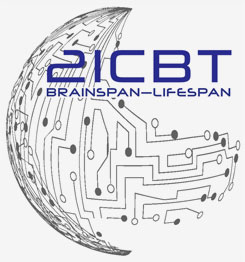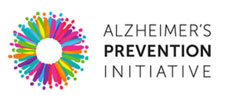Our Mission
The Geoffrey Beene Alzheimer’s Initiative was launched in 2007 as a major charitable beneficiary of the Geoffrey Beene Foundation – to fight Alzheimer’s – a fatal, degenerative, neurological disease that has no cure. The Initiative is a philanthropic, not for-profit 501(c)(3), committed to providing catalyst funding to innovative new projects that advance awareness, diagnosis and research in early stages of Alzheimer’s disease.
The Geoffrey Beene Alzheimer’s Initiative is underwritten by the Geoffrey Beene Foundation. Contributions in excess of $4.8 million have been made to support groundbreaking awareness programs and next generation research in early diagnostics. “Not unlike cancer, the Geoffrey Beene Foundation’s lead philanthropic cause, most researchers agree that the greatest potential to stop Alzheimer’s lies in the earliest stages of the disease, which is why we fund translational research. Innovative Challenges help to support that mission,” said Tom Hutton, the Trustee and Chief Executive Officer of the Geoffrey Beene Foundation and President and Chief Executive Officer of Geoffrey Beene, LLC. “We must redefine the solutions process and free the greatest minds of our time to do the work and to help save and improve lives.”
The Geoffrey Beene Alzheimer’s Initiative’s mission is engaging a new generation of innovation. Even though experts now widely agree that early stages of Alzheimer’s hold the key to treatment and prevention, individuals with early Alzheimer’s have always been difficult to identify and costly to study in traditional clinical trial-based research. As a result, the scientific community has only begun to understand initial, pre-symptomatic disease progression and potential therapeutic options. The Geoffrey Beene Alzheimer’s Initiative focuses on this relatively new field of research.
We promote “big data” analysis and mainstream digital tech applications like mobile brain behavior monitoring and social media-based population databases that can focus and support the growing millions of Americans who are worried about their brain health. The Geoffrey Beene Alzheimer’s Initiative reaches across disciplines and industries through awards-based, open source challenges that engage new leaders with new ideas about our nation’s aging population and how to accelerate the development of Alzheimer’s therapies.
The Geoffrey Beene Alzheimer’s Initiative also collaborates with inventor/entrepreneurs and researchers on real-world systems and tools that accelerate the study of Alzheimer’s and engage the public as Citizen Scientists (CogState ClinicalTrials software, BrainBaseline™, and the Alzheimer’s Prevention Registry).
SOME OF OUR PROGRAMS
The Geoffrey Beene Alzheimer’s Initiative believes that new advances in early Alzheimer’s research will require nothing short of widespread public involvement and education through high profile public service campaigns such as the pioneering HBO documentary series, “The Alzheimer’s Project,” work to alert mainstream America to the coming Alzheimer’s epidemic.
Geoffrey Beene Foundation
In Its Fight
Against Cancer
To Save Lives
Geoffreybeenefoundation.com
Breaking News
June 20, 2023
June 15, 2023
In Key Study, Servier Drug Delays Brain Cancer in Patients With Few Treatment Options






